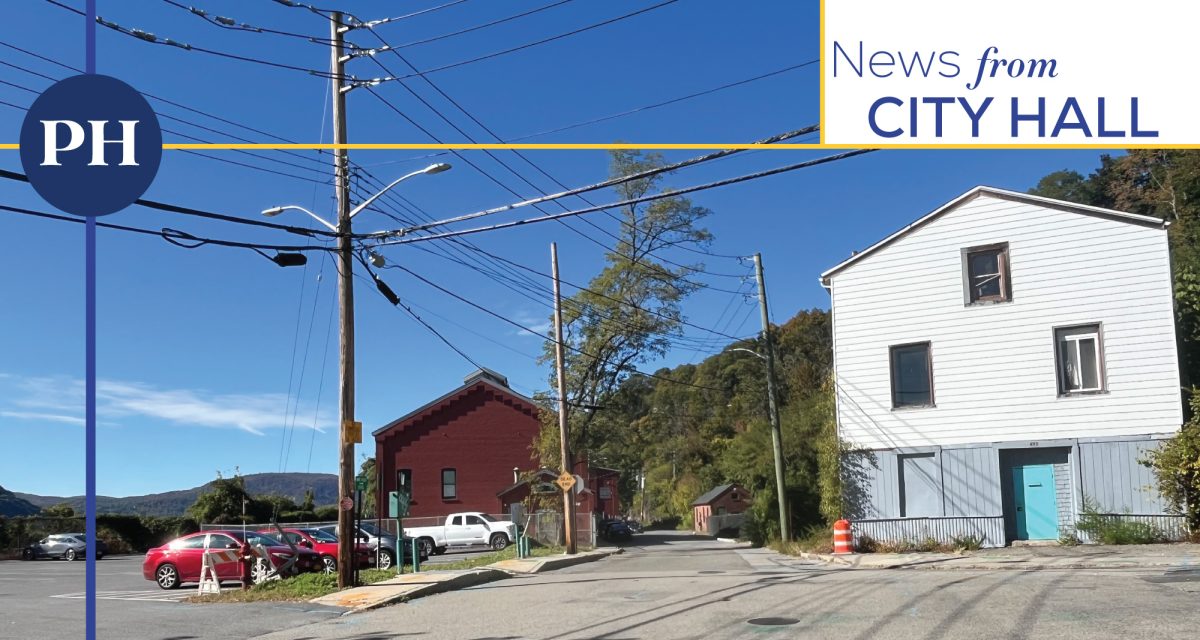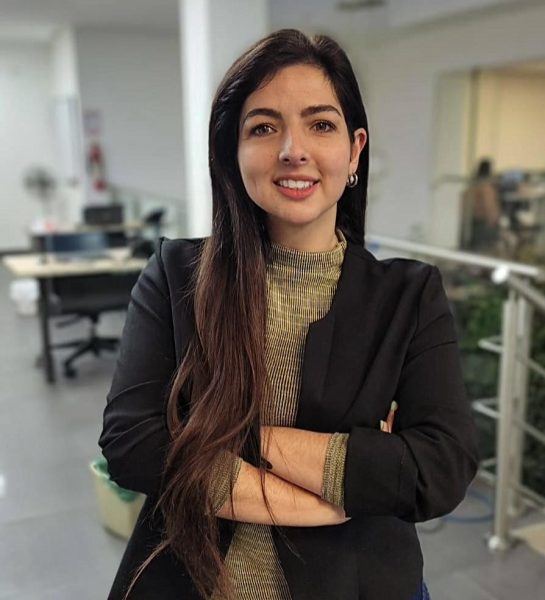A thick layer of snow covered the surroundings of the Field Library in Peekskill on Sunday morning. Yet, not even the harsh winter weather was an obstacle for Ecuadorians who arrived at the Neighborhood Center to participate in their home country’s presidential elections.
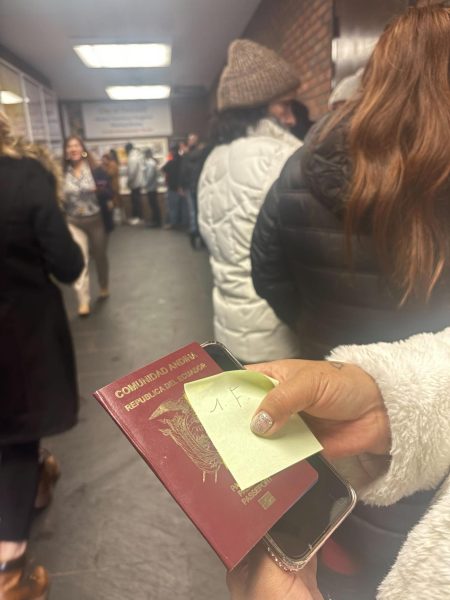
So far, more than 95% of the ballots have been counted. Candidates Daniel Noboa and Luisa González will face each other again in a runoff election on April 13, following a technical tie. Noboa has garnered 44.3% of the votes, while González has secured 43.8%.
In Peekskill, 950 people cast their votes at the four polling stations—two for men and two for women—set up by representatives of the Ecuadorian Consulate in New York for the electoral process. The voting requirements were simple: present an identification document—cedula, passport, or consular ID—and be registered before May 11, 2024.
According to Fabiola Jiménez, second secretary of the Consulate, New York has the largest Ecuadorian presence in the U.S., with an estimated population of just over one-half-million. “We have a very large community… This year, there were many more voters than in previous years,” she explained. New Jersey and Florida have the second and third largest numbers of Ecuadorian residents, according to the 2020 U.S. Census.
For the Consulate, the priority during election day was to maintain an orderly and respectful process. “The venue was too small for us, but we followed protocols to manage everything as best as possible,” Jiménez noted. Around twenty staff members, two volunteers, and two political observers participated in overseeing the democratic process.
Overcoming Fear
This time, the massive presence of women at the polls caught Jiménez by surprise. To her, this was a promising sign, as women are playing a more active role and showing greater concern for their country’s future.
For instance, Carmen, who prefers to keep her last name anonymous for security reasons, refused to let fear of a U.S. Immigration and Customs Enforcement (ICE) raid that morning prevent her from voting. She knows that one vote can make a difference.
Jiménez acknowledged that the community is well aware of the current risks and that the Consulate could not guarantee voters’ safety outside the polling station. However, they did everything possible to keep Ecuadorians well-informed and offer support in any situation. “We understand that recent raids have not targeted law-abiding individuals. They have been localized operations with specific search targets,” she stated.
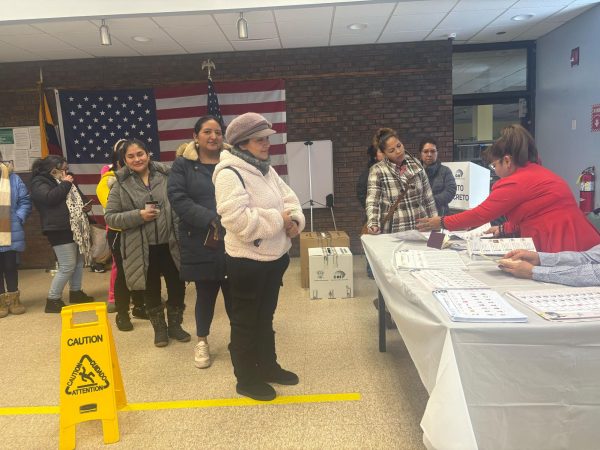
Despite this, fear lingers for Carmen. Although she has lived in the United States for eight years, she insists that her heart never left Ecuador. Given the current situation, she is contemplating returning, but the deep economic crisis and insecurity gripping her home country keep her undecided. “Here, we no longer feel safe due to immigration issues, and back home, our future is just as uncertain because of the crisis. We have no guarantees anywhere,” she lamented.
A ballot listing 16 presidential candidates made her decision even more difficult—between a life here or there. “I follow the news, and one candidate interests me, but it’s hard to keep hoping that anything will change… My family tells me that everything is bad in Ecuador, that corruption is destroying us,” she added.
Gisela also believes that this year’s election is crucial for Ecuadorian migrants considering a return home. However, the failure of politicians to fulfill their campaign promises has shattered her trust completely.
“I don’t believe anyone anymore. I feel that voting is an obligation because today I am here, but tomorrow I could be back there. That’s why I still care about what happens in my country,” she emphasized. As a mother of a baby, her future hangs in the balance.
Having lived in the United States for only two years, she remains closely connected to Ecuador’s political reality. She followed the electoral campaigns through social media and news outlets. For her, casting an informed vote is the only chance her country has to improve.
Last-Minute Obstacles
Nube Ludizaca’s name was not on the voter list. A last-minute electoral address change last September prevented her from casting her vote. “I’m leaving sad and disappointed. I came all the way from White Plains. So much time, and it was all for nothing,” she expressed.
In the past, she had traveled to Ecuador to vote. This time, she thought she could do it in the U.S. Although she misses her country, returning is no longer an option for her. Crime, theft, and other offenses have completely shattered that dream.
With her vote, Ludizaca hoped to contribute to her homeland in some way. Like most migrants, she still has family in Ecuador and believes their future matters too. “We are worried. Previous governments have left Ecuador in terrible shape. Now, it’s hard to predict who will be a good president,” she affirmed.
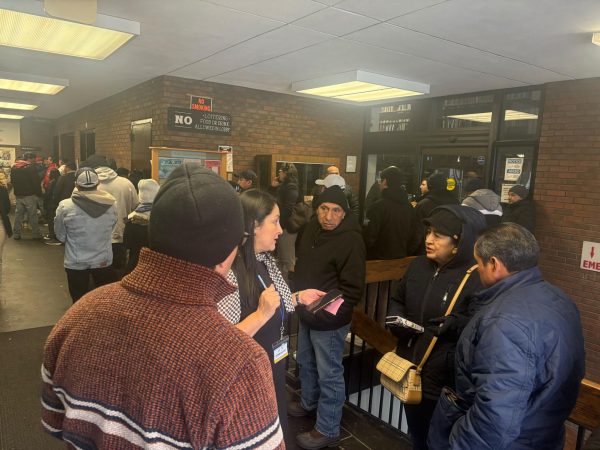
Longing for Home
It was Javier’s first time at the polls. He had never registered before due to a lack of time, but when he went to apply for his passport, he took the opportunity to complete the process. The polling station that welcomed Ecuadorian voters—clean and orderly—stood in stark contrast to the “lively” elections in Ecuador, he noted.
“I miss my country so much. Voting was always a great excuse for a food tour. Back home, people set up food and drink stalls everywhere. At one, you can have empanadas, at another, roasted pork or encebollado, and you finish with espumilla for dessert. Those were the good times,” he reminisced.
In Peekskill, the process is different. Outside the polling station, only traces of a heavy snowfall remained. “There are no food stands, and no one laminates your ballot for you. My brother and I thought about getting a machine and turning it into a business,” he joked.
However, he acknowledges that this is not his homeland and that he must be respectful of the host country that has done so much for him and his family. “I wouldn’t want to disrupt the peace or tarnish my country’s image. When you live here, you adapt to the culture and appreciate the opportunities,” he concluded.




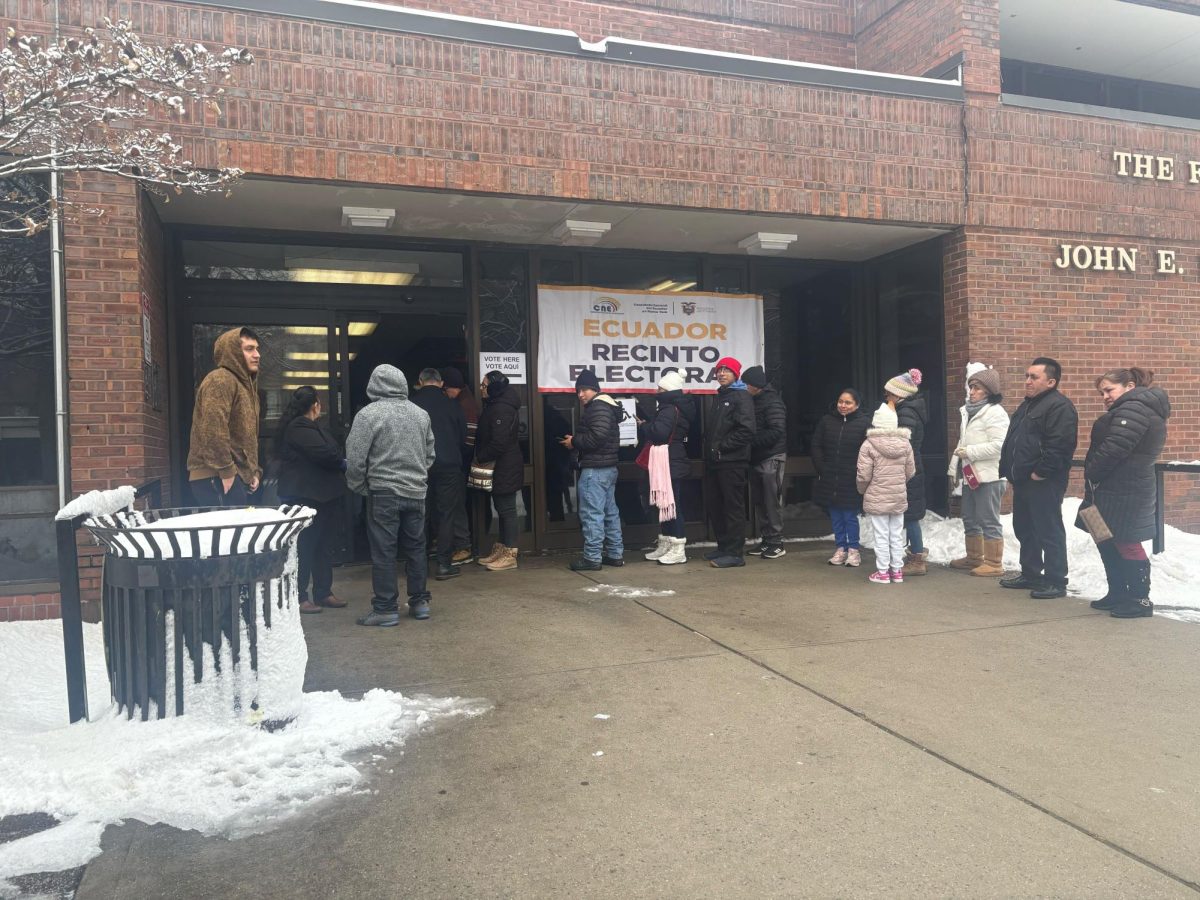

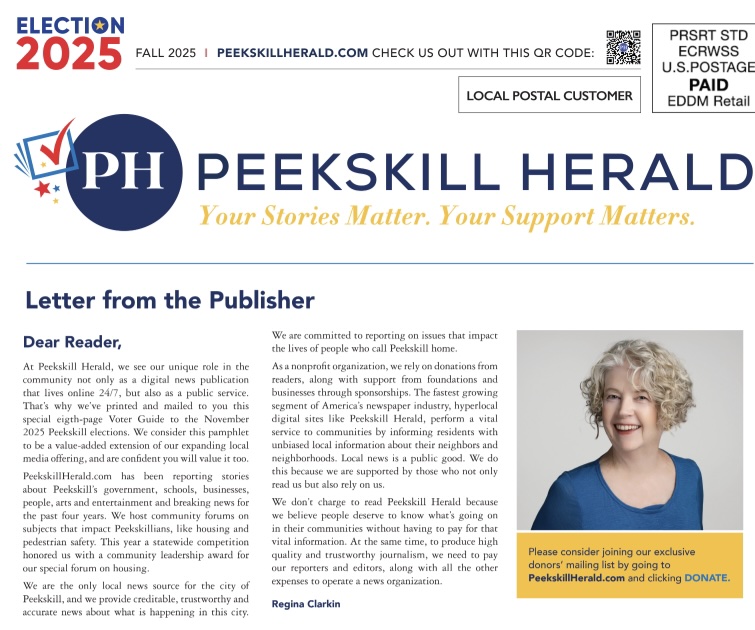
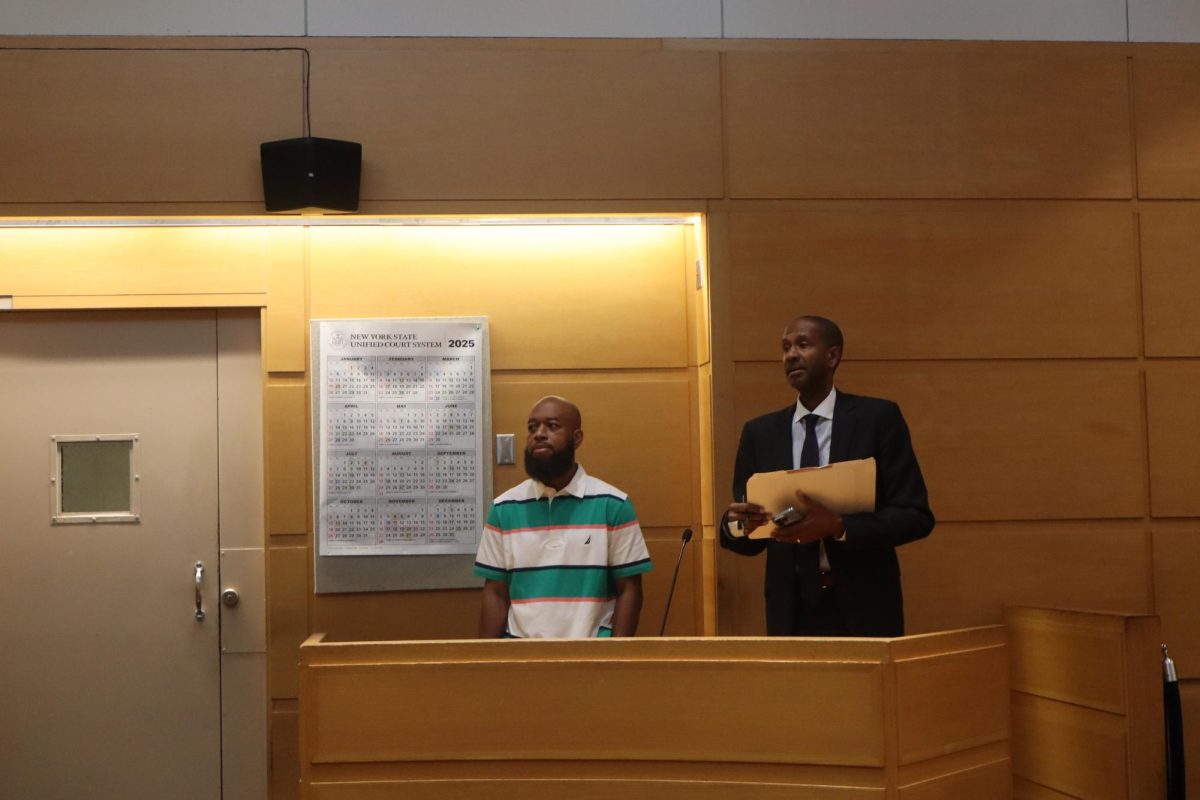
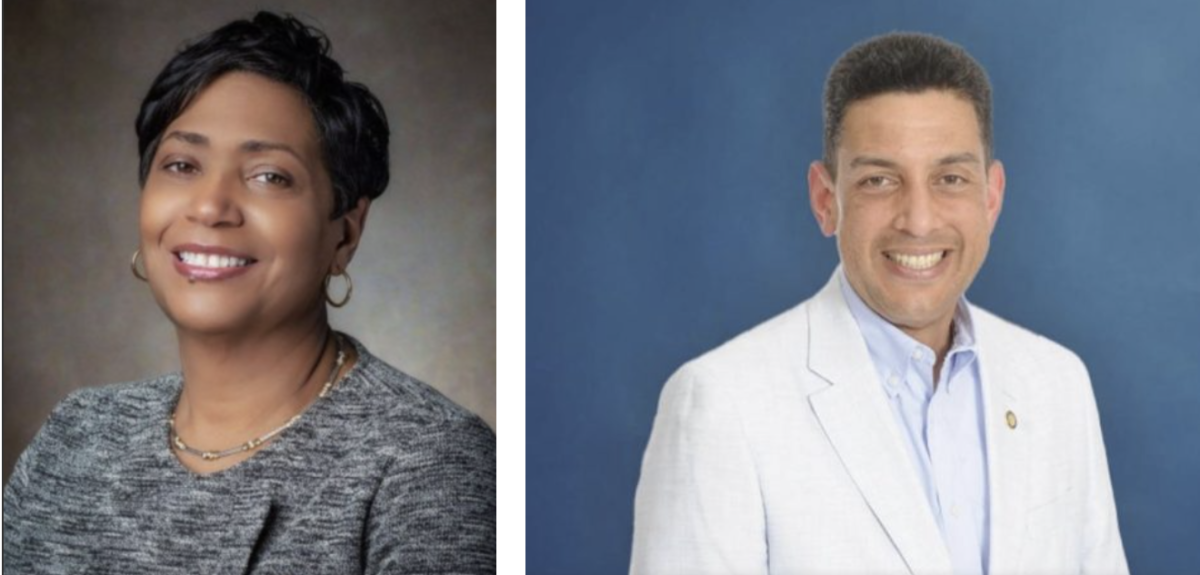
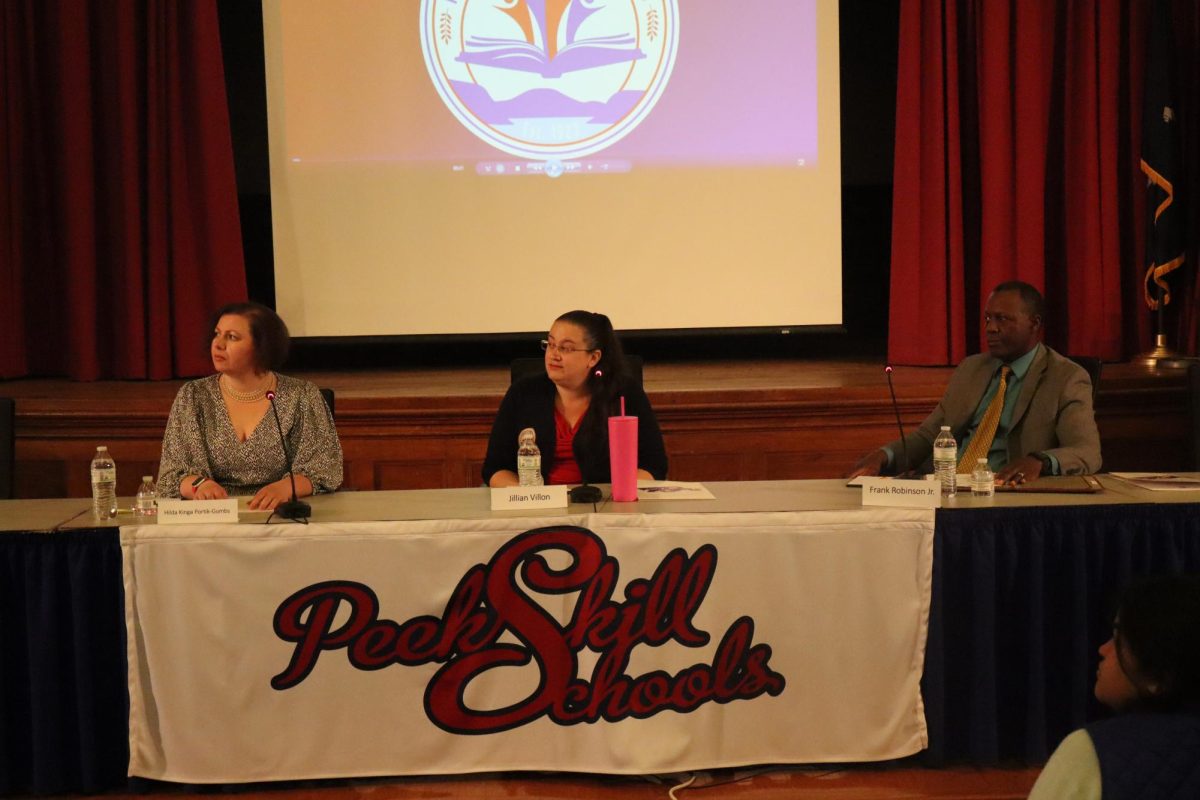

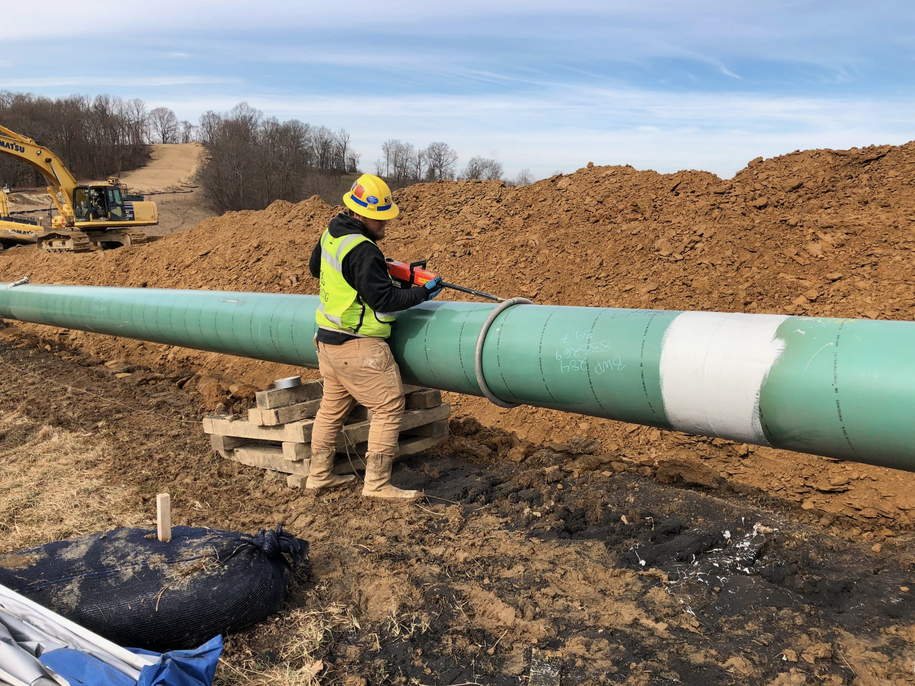

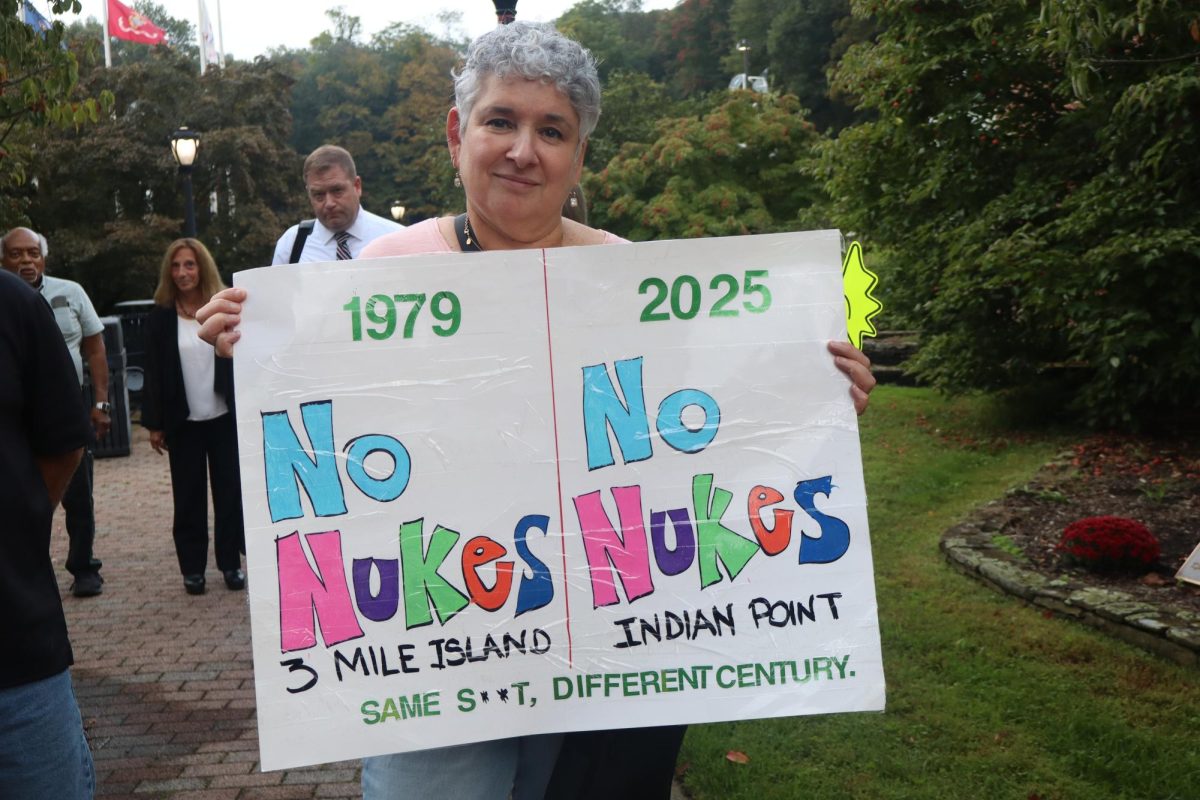
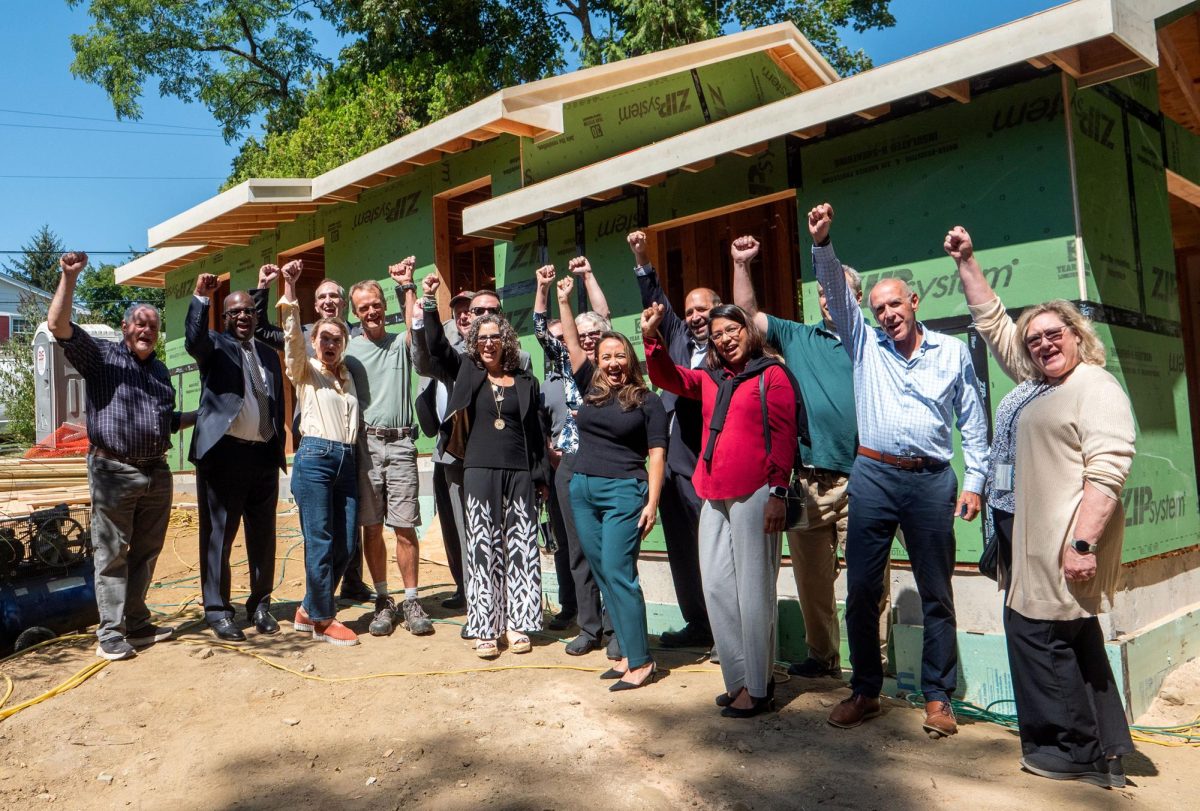
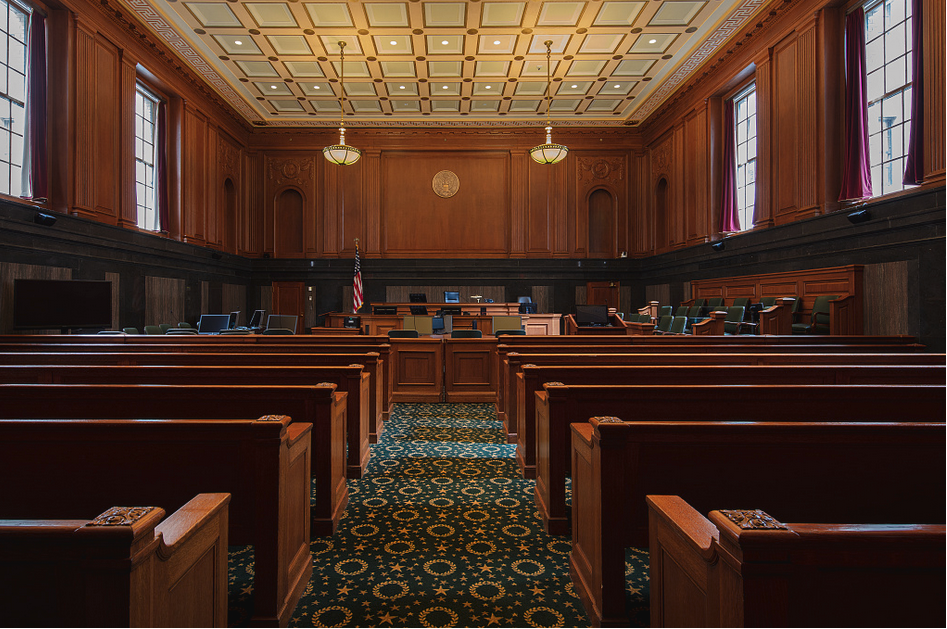
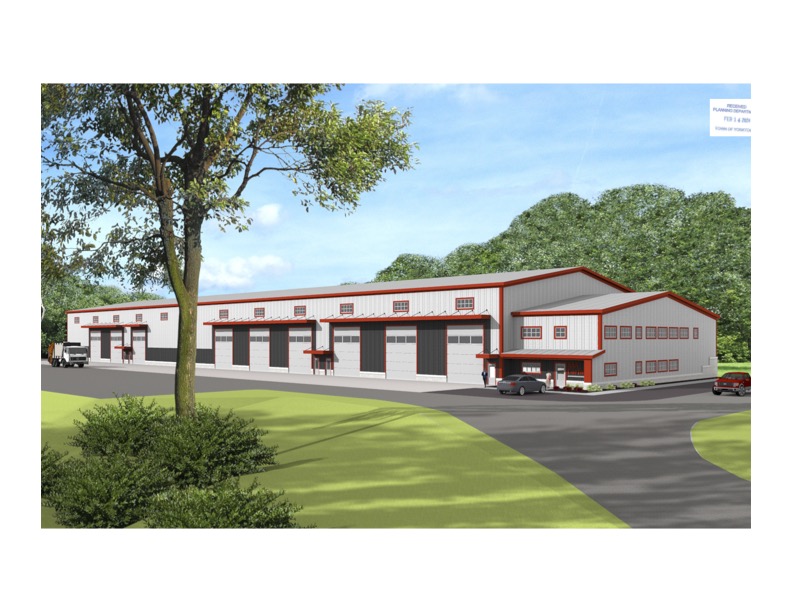


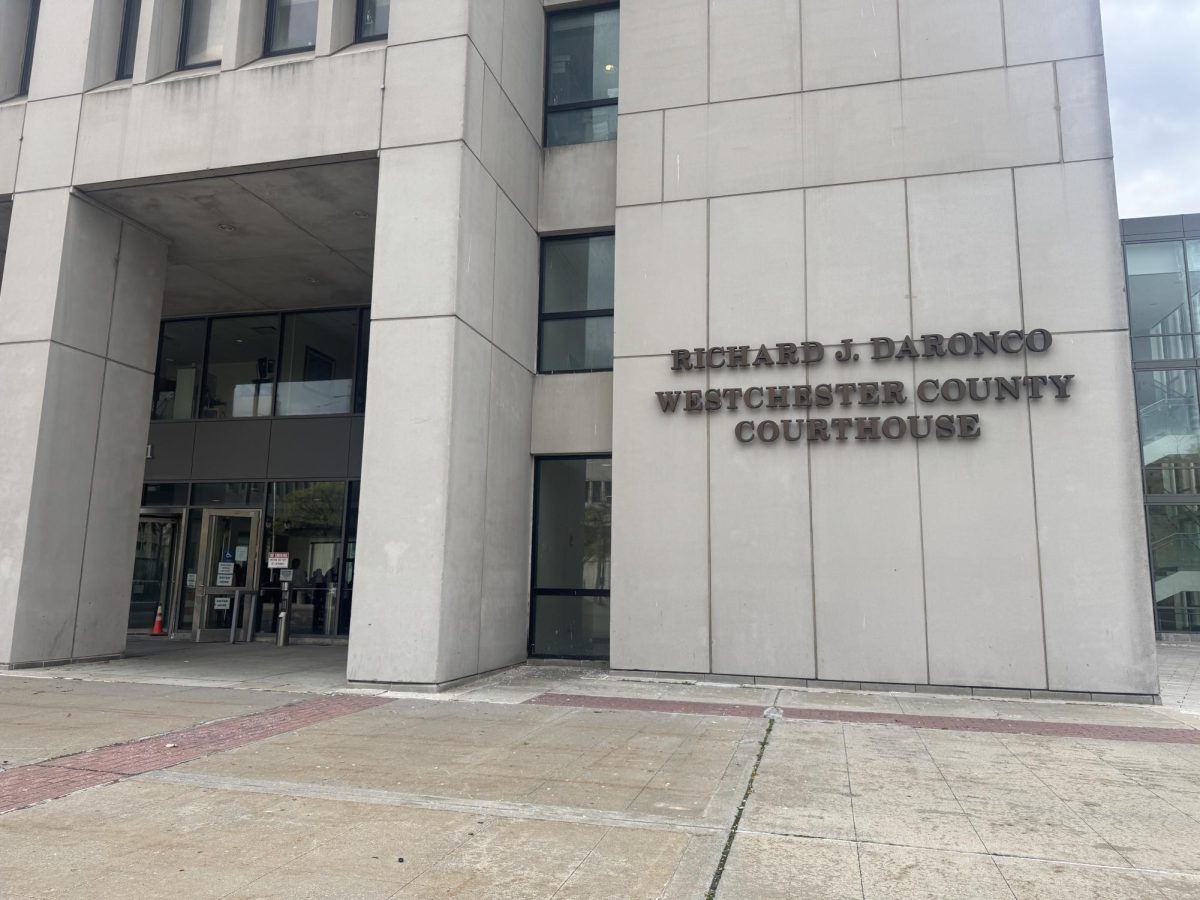
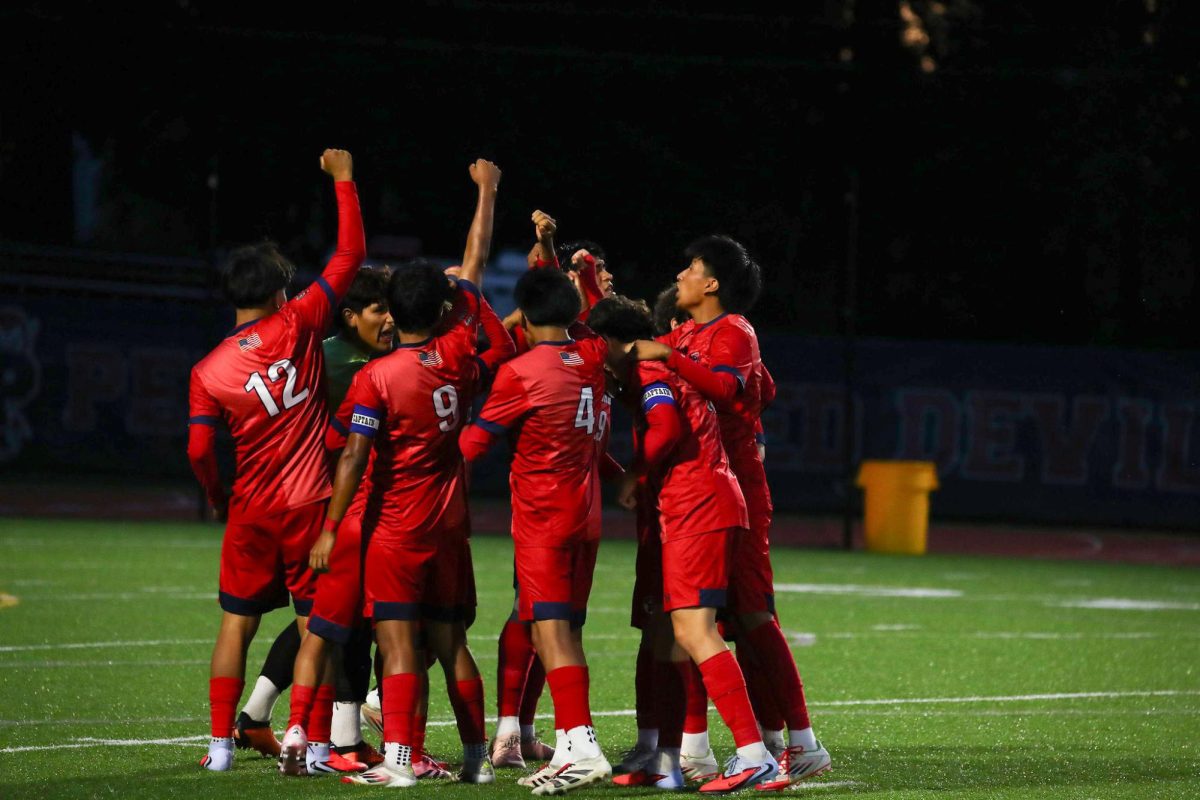
![Peekskill girls volleyball in action against Fox Lane on Oct. 16. (Peekskill City School District]](https://peekskillherald.com/wp-content/uploads/2025/10/Lead-photo-6-1200x640.jpg)
